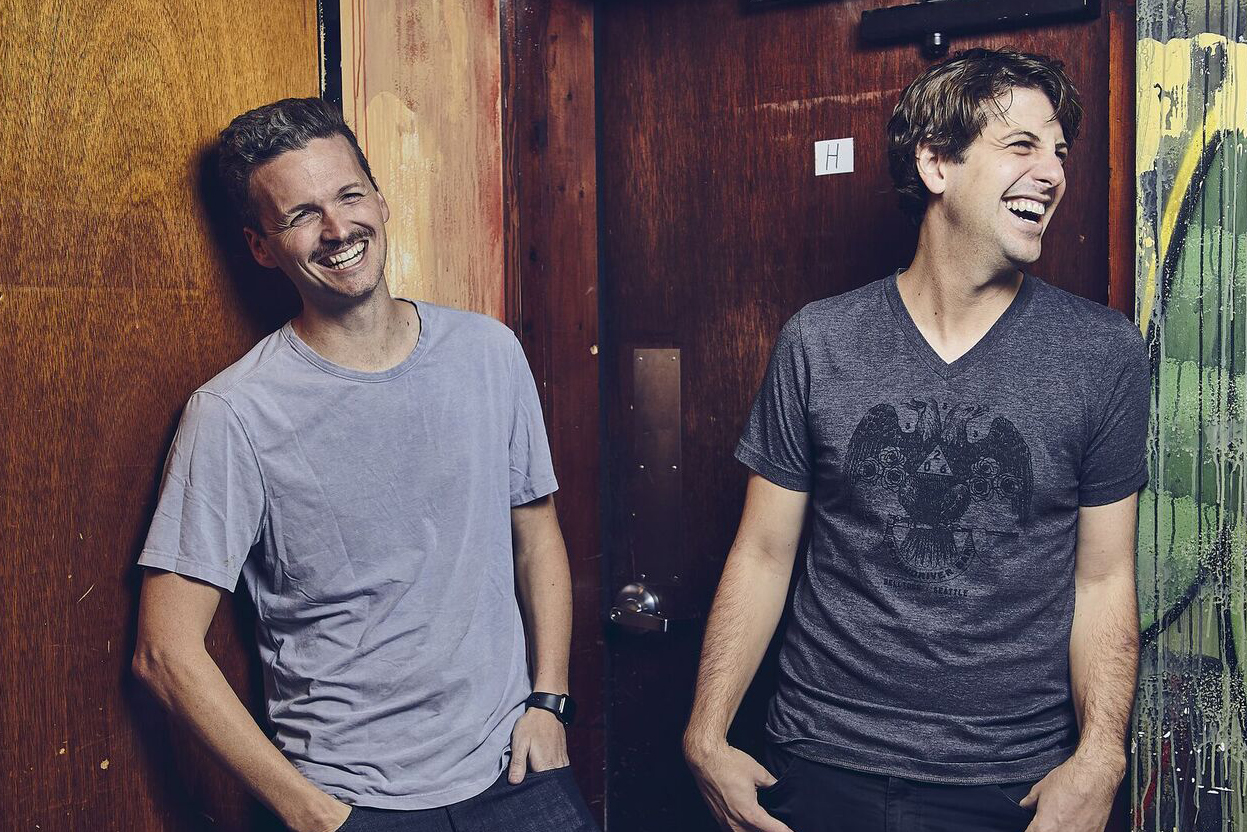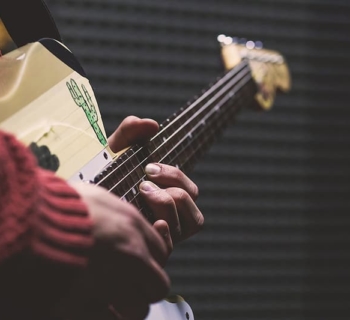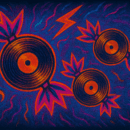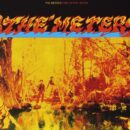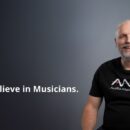Many artists dream of getting into a publishing contract with an established music publisher. After all, music publishers offer advances, hook you up with co-writes, plug your songs, collect all the money, and even help fight infringement cases.
But one thing that many artists fail to understand is that publishing deals don’t grow on trees. Said another way, established music publishing companies typically look for artists with hit song potential and representation by top attorneys and personal managers. This means that until you can generate this type of leverage in your career, you’ll just have to publish yourself.
In this article, we offer some very basic steps to setting up your own publishing company. We’ll cover everything from affiliating with Performing Rights Organizations (PROs) to getting something called a DBA to even registering with the Mechanical Licensing Collective (MLC). To conclude, we’ll offer a few suggestions for pitching and placing your own music as well. If this sounds good, what do you say we get right to it?
Step One
Affiliate as a Publisher and Pick a Name
The first step in starting your own publishing company is to contact one of the two main performing rights organizations (ASCAP or BMI) and affiliate as a music publisher. PROs are responsible for helping you collect royalties from the performances of your compositions (which we will discuss in more detail later on), but PROs are also where you set up your publishing company and create a name.
To affiliate as a self-publisher with the PROs, you’re required to pick a name for your publishing company. You’re also required to include two alternate names (three names total) in case your first choice is already taken by another publisher. And trust us, naming your company is not easy. I remember (this is Bobby speaking) when I was coming up with my company name that Bobby Borg Music was taken, Borg Music was taken, and even B Borg Music was taken. I was running out of choices, so I just grabbed the name of a bay (Mistra) where I was swimming on a recent vacation and added music to the end of the name (Mistra Music) and it was accepted. LOL. The more unique the name, the better your chances of securing that name.
To affiliate with a PRO as a music publisher, you must be prepared to pay a small fee. ASCAP charges a one-time application fee of $50. BMI charges a little more—the cost is $150 (for an independently owned company) or $250 (for a partnership or corporation). But don’t let price be the determining factor for why you choose a PRO. Be sure to talk with a representative from each organization to see which organization vibes with you the best.
Note: We purposely left SESAC, Global Music Rights and Pro Music Rights (the newest performing rights companies) out of this discussion since their members must typically be selected by a referral process. AllTrack is the final new PRO that is catering toward independent artists. Please speak with a representative of all to find out about eligibility.
Step Two
File a DBA and Open a Bank Account
Now that you’re creating a name for your publishing company via one of the PROs, the second step in setting up your self-publishing company is to file for a DBA certificate with your county clerk’s office. A DBA, or “doing business as” statement, is sometimes called a “fictitious business name.”
A DBA will enable you to cash checks made out to your publishing company name. Can you imagine the headaches you’d have trying to cash a check made out to John Doe Songs without any identification proving the connection? That’s what a DBA is for.
Getting a DBA
Getting a DBA is easy. Search online for your local county clerk’s office. You’ll need to fill out specific forms that the clerk will provide, pay a fee ranging from around $45 to $60, and submit the contents of the form to a local newspaper for printing (a procedure for which your county clerk will provide assistance); then you’ll receive your certificate soon after.
Opening a Bank Account and Getting a Tax ID Number
Finally, you also need to set up a bank account under the name of your publishing company. When opening the account, you will need to provide your Social Security Number (if you are not incorporating or starting a partnership) or a federal tax identification number (which, for a corporation or partnership, is basically the business equivalent of an individual Social Security Number).
A tax identification number can be obtained through applications filed with the IRS. (Contact the Internal Revenue Service at 800-829-1040 or irs.gov.)
Step Three
Register with the Copyright Office
Moving right along to the third step of starting your own publishing company, let us briefly encourage you to register your copyrights with the Copyright Office in Washington, D.C.
Copyright registration is the process of officially filing a public notice with the Copyright Office in Washington, D.C. that you are indeed the author/owner of a song (and/or master recording) upon a specific date. Registration provides you with a number of important benefits including 1) the rebuttable presumption of ownership, 2) the right to sue, and 3) the right to receive statutory or actual damages.
The fee to register your copyrights using paper forms is $125 per registration. The fee to register your copyrights electronically is $45 per registration (as long as you are the sole author of the song and the master) or $65 per work per registration (when there are multiple authors/owners). To initially save money, you can also register several copyrights together as a “group of unpublished works” on one registration for $55. But that being said, note that once your copyrights are published, it is recommended to go back and register each copyright individually.
If you have any further questions regarding how to fill out a copyright form, the Copyright Office will be more than happy to assist you. Please call the Copyright Public Information Office at 202-707-3000 or visit their website at copyright.gov.
Step Four
Prepare to Collect Royalties
And now, progressing to more exciting stuff, the fourth step in setting up your self-publishing company deals with money and making sure that you are prepared to get paid. Let’s go ahead and go right down the list of what we call the four food groups of music publishing to ensure that you don’t miss a single penny. This includes mechanicals, performances, synch, print royalties, electronic transmissions, and foreign sub-publishing incomes.
Mechanicals (For CDs and Vinyl)
Mechanical royalties are fees payable for the reproduction (or copying) of your songs on CD and vinyl (they are also fees for the copying of your songs via digital download or streaming, but we’ll discuss that later). The person who is doing the copying is the person who pays the mechanical royalty. So, how you approach the collection of mechanicals will depend on whether you are the record label or if you are signed to an outside established record label.
When You are the Label (Doesn’t Apply)
When releasing your own records as an independent DIY artist, you are obviously not going to pay yourself a mechanical royalty out of any money collected from the sale of the record, so there is nothing to really discuss with regard to the collection of these royalties. Let’s move on.
When You Are a Signed Artist (DIY or HFA)
When you are in a signed recording contract, the record company is indeed required to pay you mechanical royalties for the use of your songs on record. Record companies can send you your mechanical royalty statements directly, or if you choose, you can have a major mechanical rights collection society such as the Harry Fox Agency (HFA) issue mechanical licenses and collect those royalties for you. HFA periodically also audits the record company to ensure that they are not doing anything sneaky, so this might be a good route for you to go if you don’t trust labels.
HFA charges a percentage of your gross earnings, which is subject to change, so check their website for the most current rate. We can say that it is around 11.5 percent of your earnings, but whatever the rate, we think that it is worth it. Record companies tend to get backed up in their royalty payments and without someone breathing down their neck, it might be a while before you’re paid. We know people that literally have to call up the record company yelling to get their money before the label is forced into writing a check. In fact, it’s happened to us.
You can contact Harry Fox at 212-834-0100 or visit the HFA website at harryfox.com.
Performance Royalties (PROs)
Performance royalties, once again, are the monies that you receive for the public performance of your composition by a variety of different music users. These users include radio stations, television networks, Internet sites, digital streaming sites (including non-interactive webcasters like Pandora and satellite radio like SiriusXM), and more. Of course, you know that performing rights organizations collect this money. To ensure you get paid, do the following:
PRO Publisher Affiliation
You already affiliated as a self-publisher in step one when you formed your publishing company and created a name, so you are good to go here. Your PRO will send you the publisher’s share of any income for the performances of your compositions that is due to you.
PRO Writer Affiliation
In addition to affiliating as a self-publisher, writers are required to have a separate writer affiliation. This is because performing rights organizations always send the “writer’s share” of earnings directly to the writer, regardless of who the music publisher is—even if it’s you.
ASCAP charges a one-time fee of $50 for writers. BMI charges nothing.
Title Registration
Finally, as both the publisher and writer of your songs, it’s absolutely essential that you provide your performing rights organization with detailed information (name, title, shares in a song, etc.) for every composition you publish so that you can be entered into their system and get paid.
If you’re the sole writer of a composition, you own 100 percent of the writer’s share and 100 percent of the publisher’s share. If you write a composition with your four-member band and you’re dividing the credit equally, then each member owns both 25 percent of the writer’s share (4 x 25 = 100) and 25 percent of the publisher’s share (4 x 25 = 100).
Synchronization Fees and Master Monies
Synchronization (or just synch) refers to the art of “synchronizing” (or merging) your music with visual images in motion pictures, television, the Internet, video games and all other audiovisual media. When someone wants to use your copyrights for these purposes, two different licenses are required: One for the song and one for the master.
Synch Fees
Despite a few exceptions (mainly Public Broadcast Television Stations), synch is completely negotiable. This means that while there are certainly reasonable industry norms, a publisher has the right to set his or her fees. For an independent artist, synch licenses might be issued by you for free (just for exposure) or for several thousand for use in a popular TV show. In any case, synch monies can be sent directly to you from the various production companies with whom you contract (either via mail or automated clearing house [ACH]).
Master Monies
Another distinct type of income that comes from synchronization is master use fees (though this money goes to the master owner and not to the music publisher, unless the two are the same).
If you own the masters that embody the songs being licensed, you are entitled to a separate fee from the synch fee for your songs. Master use fees are traditionally negotiated on a “most favored nations” basis. This means that whatever amount was offered to the publisher of the songs, the same amount is offered for the master recording as well, or vice versa, whichever is negotiated first.
Like synch fees, master use fees can be sent to you either via the U.S. Mail or via ACH directly from the various production companies with whom you contract.
Print Royalties
Print royalties are the monies you make when your music and/or lyrics are sold in printed form. This includes sheet music, folios (music books) and more.
When someone—like a printer—wants to use your copyrights in printed form, a license is required. A print license can be issued by you (the music publisher) and royalties can be collected directly by you (the music publisher) from the music printer as well.
Electronic Transmissions
Moving into an area that encompasses the four food groups of music publishing, let’s discuss electronic transmissions, which you should know is more a “source” of income than a type of income. This includes interactive streaming, non-interactive audio-only streaming, interactive video streaming, downloadable sheet music/lyric websites and permanent digital
downloads.
Interactive Streaming (MLC and PRO)
When your music streams on sites like Spotify or Apple Music (a process where your music is copied onto a central servicer and performed), than you are going to be owed a mechanical and a performance royalty from the digital service provider who is doing the streaming.
To ensure that you collect your fair share of mechanicals from streaming, it is absolutely important that you register your songs (as of Jan. 1, 2021) with an organization called The Mechanical Licensing Collective (MLC). The MLC issues a blanket mechanical license to the streaming services and then the MLC matches up the reported streams to the compositions and pays out the mechanical royalties to publishers just like you. But just be clear: if you are not registered, you will not be paid! For more information, please be sure to visit the website atthemlc.com.
To ensure that you collect your fair share of performances from streaming, you must be registered with a PRO, which you have already done, so you are golden! Let’s move on.
Non-interactive Audio-Only Streaming (PRO)
When our music streams on sites like Pandora and from satellite radio providers like SiriusXM (where you can’t determine what you listen to), you are entitled to a performance royalty only. To ensure that you collect your fair share of performances from non-interactive streaming, you must be registered with a PRO, which again, you have already done, so you are good to go.
AFTERTHOUGHT:
WHAT’S SOUNDEXCHANGE HAVE
TO DO WITH IT?
While this is more of a record company issue than a publishing company issue (though the two can be one of the same), remember, that master owners are entitled to receive a broadcast performance royalty from web radio stations like SiriusXM and Pandora mainly. If you own your master recordings and are also acting as your own record company (and/or if you perform on your masters as a featured or non-featured musician), be sure to register with SoundExchange. Visit soundexchange.com.
Interactive Video Streaming
When your official promotional music videos are uploaded to sites like YouTube and then streamed, or when “user-generated content” is uploaded by users (like lifestyle videos that use your music or even cover videos) and then streamed, you may be entitled to synch fees (or otherwise, advertising money) as well as performance royalties.
Technically the entity synching your music should request a license directly from you, but on sites like YouTube, this is usually not going to happen. Instead, publishers must register their songs with YouTube (usually via AdRev or others) who will then pay a portion of the ad revenue that is collected as the alternative to a traditional synch fee.
To ensure that you collect your fair share of performance royalties from video streaming, yup, you guessed it, you must be registered with a PRO, so no problem here. You’ve done that.
Downloadable Sheet Music/Lyric Websites
When digital sheet music distributors like Musicnotes.com and Sheet Music Direct want to sell your music in printed format, they must get a license directly from you the publisher. Royalties can be contractually negotiated to be distributed directly to you through the U.S. Mail or via ACH.
And while on the topic of print royalties, what about lyric websites? When lyric websites like LyricFind and Genius want to display your lyrics on their sites, they must obtain a print license from you the publisher and pay you a percentage of the advertising money. Again, royalties can be contractually negotiated to be distributed directly to you through the U.S. Mail or via ACH.
Permanent Digital Downloads (I.e., iTunes-Type Royalties)
When you publish your songs and allow sites like iTunes, Amazon and eMusic to sell them as a digital download, you are entitled to a statutory mechanical fee of 9.1 cents per song paid to you (the publisher).
If you are an independent artist acting as your record company, you are obviously not going to pay yourself a licensing fee for reproduction of your songs in digital download format.
If, however, you are an artist who is signed to a recording agreement with an outside indie or major, the record company is responsible for paying you this royalty. You can collect that money directly from the label or you can have an agency like the Harry Fox Agency collect on your behalf.
Sub-publishing Income
Finally, let’s talk quickly about sub-publishing income. Foreign sub-publishing income is the money that you earn when you publish your music outside of the U.S. For instance, when your songs are streaming on platforms in foreign territories (like Tencent and NetEase in China), it is likely that you are entitled to foreign sub-publishing income.
Foreign sub-publishing income is not really a type of income itself, but rather a source made up of the same four food groups: mechanicals, performances, synch, and print. The difference, however, is that it is treated in some ways differently from U.S. income.
Without going into the weeds here, the bottom line is that in order to collect foreign sub-publishing income you need to enlist the assistance of a local sub-publisher in the territory or your money could end up lost in the black box (i.e., your money could go uncollected and end up in other artists’ pockets). So how the heck are you going to do that? You have three options:
- You might be able to find a service, for instance CDBaby Pro via SongTrust, that promises to help DIY artists collect foreign royalties in addition to handling other administrative services like registration with the PROs, the MLC, and with synch licensing.
- You can contact directly any of the local performing rights or mechanical rights agencies in each country (such as GEMA in Germany or JASRAC in Japan) and ask them for a list of their registered local publishers and then contact them on your own.
- You may be able to arrange a deal with a U.S. publishing company (assuming you have a little leverage) that has worldwide offices like major publishers such as Warner/Chappell Music, Universal Music Publishing Group, BMG, and Sony/ATV Publishing. There are also smaller publishers like PEN Music Group and Round Hill Music who all have worldwide affiliates.
Just keep in mind that all of these options above are going to require you to pay a small fee. Sub-publishers typically take from 10 to 25 percent of what they collect.
Step Five
Improve Your Pitching Game
Okay, so getting to the last step of the process in setting up your self-music publishing company, we have to state clearly that your business will not be worth one penny unless you perfect the art of pitching and placing your music, unless you get lucky and you blow up and the licenses effortlessly flow into you. LOL. This can actually be a separate article in and of itself, but here are three super important points.
Have Great Songs/Recordings
Probably the biggest tip we can give you starts with the music.
Write music with memorable hooks and clear lyric subjects and make sure that your music evokes strong feelings and is applicable to specific moods and scenes for film and TV.
Also be sure that the recordings of your music contain strong vocal and instrumental performances, current instrumentation and mixes, and cleared samples (if any). You might also have both a “clean” (no-profanity) version of your music as well as an instrumental (no-vocal) version of your music available for a variety of different situations that might come up.
Just have high-quality material. Music publishing really does start with the music.
Don’t Be Afraid to Take Baby Steps and Think Out of the Box
Don’t just shoot for the biggest placements in major motion pictures and television shows (which are probably untouchable for you right now). Rather, think small to build credibility and don’t be afraid to think out of the box.
Hit up students who are making films, local businesses who are advertising on the radio or cable, and even fitness instructors who are playing music in their spinning classes. We know artists who have written the entrance music for mixed martial arts fighters, composed music for wedding videos, and placed music in actor reels. Would you believe that one young artist we know actually got signed to a publishing deal because his music got played in a spin class where the wife of a music publisher was exercising? True story.
So look, gang, while we understand that you are in a hurry to make it, slow down, think small, and think out of the box. Eventually all of the small things you do will start looking like a mountain of credits and the bigger gigs will come.
Master Your Interpersonal Skills
And finally, become an expert at everything to do with the fine art of communication. Bottom line: if people like you they will want to do business with you.
Learn how to write effective emails that grab the attention of the intended receiver while being clear, concise, and confident. Big people in big places do not have time for chit-chat.
Learn how to be persistent while also being pleasantly patient at the same time. Remember that no one owes you anything in this business. So maintain a great attitude.
And learn how to make people feel good about themselves by researching certain contacts (like the ones you expect to see at a big conference). Start up an interesting conversation with key people in order to stimulate healthy dialogue. People like to hear nice things about themselves and talk about themselves too. Just be sure never to be phony.
BOBBY BORG is the author of Music Marketing for The DIY Musician and Business Basics For Musicians, both in their Second Editions (2020). This article was excerpted from Borg’s marketing book with the permission of Ronan & Littlefield. You can purchase Bobby Borg’s books and also sign up for his weekly free blog “Borg’s Blog” by visiting bobbyborg.com.
MICHAEL EAMES (who is cowriting a new book with Borg) is the founder of PEN MUSIC at penmusic.com.


